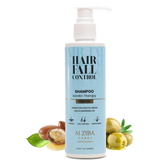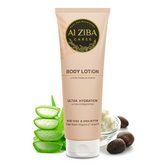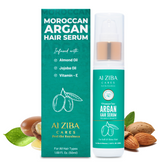Saving the Animals and Your Skin : A Guide to Cruelty-Free Skincare
For far too long, the beauty industry has had a poor reputation regarding animal testing. According to the Humane Society International, thousands of animals suffer and lose their lives every year due to being used as testing subjects for cosmetic products like mascara and shampoo. This has led many people, especially animal lovers, and activists, to become conscientious of the products they buy and opt to buy from alternative brands.
Are you looking to make sure the beauty products you use are cruelty-free? Then this post is for you! We’ll cover some of the key elements you should consider when shopping for cruelty-free beauty products. From ingredients to labels, this guide will help you find the best cruelty-free makeup, skincare, and hair care.
What Does "Cruelty-Free" Mean?
The phrase "cruelty-free" is often used concerning animal rights, referring to activities and products that do not involve harming or killing animals. However, this term's exact definition and meanings can vary slightly depending on the industry and who is advocating for the protection of animals. In essence, "cruelty-free" signifies that no animal testing or suffering has been used in the production of the product or activity.
Have you ever wondered what the term “cruelty-free” means when reading labels on beauty and skincare products? As of December 2020, unfortunately, the Food and Drug Administration (FDA) does not have an official definition for the term “not tested on animals”. This means that there are currently no federal regulations mandating the process for producing and testing cruelty-free products.
Although there are no strict laws in place, there are certain criteria that companies must meet to gain official certification of their products as cruelty-free.
- The brand absolutely must not conduct testing on animals at any time during the production process, nor sell products produced by companies that have done so.
- For shoppers looking to ensure only cruelty-free products are appearing in their homes, Leaping Bunny provides the most reliable certification. With over 2,000 brands certified, it's easier than ever to source products with their logo and make sure your purchases are made with kindness. Put your money where your morals are - make sure cruelty-free products are your choice every time.
The Reality of Animal Testing
Animal testing is much more widespread than most people may imagine. Beyond just the beauty sector, animals such as rabbits, mice, guinea pigs, hamsters, cats, dogs, and non-human primates have long been utilized for testing across a range of industries, including pharmaceuticals. Just one product may require up to 12,000 animals during its testing phase before being registered.
Animals are subjected to toxic, painful, and cruel procedures in laboratories in the US and around the world. Shockingly, it's estimated that over 100 million animals are harmed each year, and the true total may even be higher since many of the animals used in testing are not accounted for in any official figures. How can you make sure the products you buy are cruelty-free?
Here are some key points to ask when evaluating whether or not a product or brand is cruelty-free:
- It's always important to do your research and make sure you understand what goes into the production of the items you buy. Ensure that the brand doesn't test its products on animals. Even if the brand has different product lines, make sure the company itself, as well as any of its partners, is not involved in any animal testing activities.
- When it comes to buying beauty products, it's important to be aware of the ingredients and their testing methods. If a brand tests any of its ingredients or formulations on animals, then this is something you might want to be cautious of. It's not just the final product that needs to be considered; it's also the individual components that have gone into making it. Consider researching the sources of the ingredients and the type of testing they've gone through to ensure they're cruelty-free.
- If you're wondering if your favorite brand tests on animals, the answer is, not necessarily no. Most brands outsource their ingredients from suppliers to make their products, so it's important to make sure that none of these suppliers use animal testing as part of their manufacturing process. Brands should assure that their suppliers follow a cruelty-free policy to ensure that ingredients are manufactured humanely.
- When searching for products that fit your personal ethical and moral standards, it's important to understand what a company's animal testing policies are. Does the brand have any direct resources or relationships with entities that are testing on animals? Or, is the brand asking any of its suppliers and partners to do animal tests on their behalf? No matter the industry, it's important for brands to demonstrate that their suppliers are not participating in animal testing.
- It's a valid concern, as some markets require animal testing for cosmetic products. Sadly, this is true in Mainland China, where imported beauty products must by law be tested on animals. So if a brand sells its products in such a market, it's likely engaging in animal testing. However, many brands are true to their values and do not engage in animal testing for any of their products. If you're unsure about a particular brand, it's always a good idea to check its website for statements regarding its stance on animal testing and animal cruelty.
Which Logos Should You Look for When Shopping Cruelty-Free?
When shopping for cruelty-free products, there are certain symbols you should look out for that can help you determine if a product is truly cruelty-free and animal-friendly. However, not all companies pay licensing fees to certify their products, meaning these seals and logos won't always be present. It's helpful to know which logos are official and therefore the most reliable when you're shopping.
If a product is certified by a specific organization but can't find any seals or logos then fear not - there is an easy way to find out. Looking up potential brands in a certified brand database provided by its licensing organization usually tells the tale!
For example, if you are looking to purchase a PETA-certified product, you can search their public list here. If you're looking for a Leaping Bunny-certified product, check out their public list here. So, rather than going in blind, use the resources available to verify a brand's certification and make an informed purchase.






